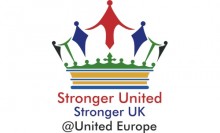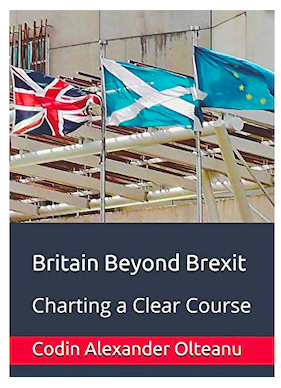Media coverage in Britain of the European Union in general and of the Brexit Referendum in particular varies widely in both scope and quality. British tabloids have had for a very long time an unambiguously anti-European sentiment - ever since Jacques Delors’ Presidency of the European Commission and his confrontations with Margaret Thatcher over ‘our money’ resulting in the famous Sun headline: Up Yours Delors. To this day British tabloids and most daily mass circulation papers - many of them part of the Murdoch media empire - remain resolutely anti-European and exploit European crises - in particular immigration and the rise of right-wing xenophobic movements. They invariably highlight problems with what they describe as Britain being taken advantage of by European citizens who access ‘our’ social housing stock and receive ‘our’ social benefits whilst accepting lower wages, thus leading to loss of income and even of jobs by British citizens. They also focus on what they portray as the influx of large numbers of people from former Eastern Europe and even from the south of the continent and how this results in the involvement of some of them in criminal networks including drugs, prostitution, and illegal immigration. These topics are used on a regular basis by tabloids and many dailies to appeal to certain sections of the British public who have not benefited from globalization and from the extension of the single European market. They stoke up feelings of hyper-nationalism and resentment against foreigners, outsiders, ’others’.
There are of course high-quality media that adopt an entirely different approach: The Guardian and to a large extent The Financial Times present on a daily basis in-depth articles, analyses, reports detailing not only the disadvantages but also the advantages of British continuing membership in the European Union. So do the worldwide respected magazine The Economist and the BBC - both on its television and online media networks.
Media coverage in Britain of the European Union in general and of the Brexit Referendum in particular varies widely in both scope and quality. British tabloids have had for a very long time an unambiguously anti-European sentiment - ever since Jacques Delors’ Presidency of the European Commission and his confrontations with Margaret Thatcher over ‘our money’ resulting in the famous Sun headline: Up Yours Delors. To this day British tabloids and most daily mass circulation papers - many of them part of the Murdoch media empire - remain resolutely anti-European and exploit European crises - in particular immigration and the rise of right-wing xenophobic movements. They invariably highlight problems with what they describe as Britain being taken advantage of by European citizens who access ‘our’ social housing stock and receive ‘our’ social benefits whilst accepting lower wages, thus leading to loss of income and even of jobs by British citizens. They also focus on what they portray as the influx of large numbers of people from former Eastern Europe and even from the south of the continent and how this results in the involvement of some of them in criminal networks including drugs, prostitution, and illegal immigration. These topics are used on a regular basis by tabloids and many dailies to appeal to certain sections of the British public who have not benefited from globalization and from the extension of the single European market. They stoke up feelings of hyper-nationalism and resentment against foreigners, outsiders, ’others’.
There are of course high-quality media that adopt an entirely different approach: The Guardian and to a large extent The Financial Times present on a daily basis in-depth articles, analyses, reports detailing not only the disadvantages but also the advantages of British continuing membership in the European Union. So do the worldwide respected magazine The Economist and the BBC - both on its television and online media networks. Overall however coverage of the European Union institutions and especially its Parliament and the debates and discussions that take place there don’t receive wide coverage unless they are directly related to specific British contexts - such as for example Nigel Farage’s latest diatribe against European Commission President Jean-Claude Juncker or Farage using the scope of the current European migration crisis to make inflammatory comments about non-European refugees - most representing in his opinion a ‘clear and present danger’ to our way of life.
These three decades or more of purposefully selective and in many ways biased misrepresentation of the European Union public sphere by a large and influential section of the print and online British mass media is very different from what happens in other European media markets and especially in the original member states of France, Germany, Belgium, and the Netherlands, where discussions, debates, votes, and decisions of the European Union level of governance are given similar coverage to those taking place at national and local levels of government. The result of this gross imbalance in the British media's approach to the European Union is a general lack of understanding by the greater part of the British population of what the European Union is, what it does, how it benefits Britain as a whole and individual citizens specifically, and how it allows British citizens to actively contribute to the way the EU approaches and resolves many of the critical challenges we face today.
The coverage of the Brexit referendum itself in Britain is done through the prism of the conflict at the heart of the Tory government between Prime Minister Cameron and the Eurosceptic wing of his party, but also and just as importantly with a view towards the struggle for his succession taking place today between Chancellor George Osborne and current London mayor Boris Johnson. In fact the BBC will organize the greatest media event of this referendum only 48 hours before the June 23,2016 vote by staging a debate between the two leading contenders for Cameron's job at Wembley Arena in front of tens of thousands of people, where the two rivals for the country’s top job will engage in a highly personal duel by sparring over the pros and cons of Britain's continuing membership of European Union. Yet again here the real focus of the British media is not so much on the substantive issues being discussed, but on the power struggle between two would-be Prime Ministers cynically using the Brexit Referendum to further their own political ambitions. The British daily The Telegraph tellingly reports:
Boris Johnson and George Osborne are being lined up to debate the future of Britain in the European Union in front of a 12,000-strong audience just 48 hours before the in/out referendum on June 23. The BBC debate at Wembley Arena - the broadcaster's biggest ever "campaign event" - will be the first time that the two most likely successors to David Cameron as Tory leader have faced each other in front of a live audience. The Telegraph understands that senior BBC producers are already sounding out a number of political leaders to ask if they can appear on the programme on Tuesday June 21 which will be beamed live into tens of millions of voters' homes. The scale of the debate so near to referendum day means that it is likely to become one of the most watched programmes of the year. One source close to the talks said: “It will be an absolute bearpit.”
There is then a peculiarly British version of the ‘Infotainment culture’ where media magnates with their own agendas play outsized roles in shaping the views of British citizens and where decisions regarding challenges that can be only solved at the European level of governance are presented, debated, and decided not in a rational and deliberative manner so as to allow the best argument to emerge – but as gladiatorial blood-sport combats aiming to thrill, to entertain, and ultimately to destroy the losing contender.
This lopsided approach of the British media to EU issues in general and to the Brexit referendum in particular renders Stronger United's campaign to bring relevant facts and information and generate debates and discussions in as many communities as possible across the country even more important. Only by bypassing the traditional channels of the British Infotainment network and by giving British citizens in their schools, colleges, universities, libraries, and parishes the ability to access actual verifiable information, exchange ideas, debate issues, and make up their own minds in a democratic and deliberative manner, will we be able to truly engage in a meaningful, fair, an forward-looking process of decision-making about whether Britain should continue to stay in the European Union.

